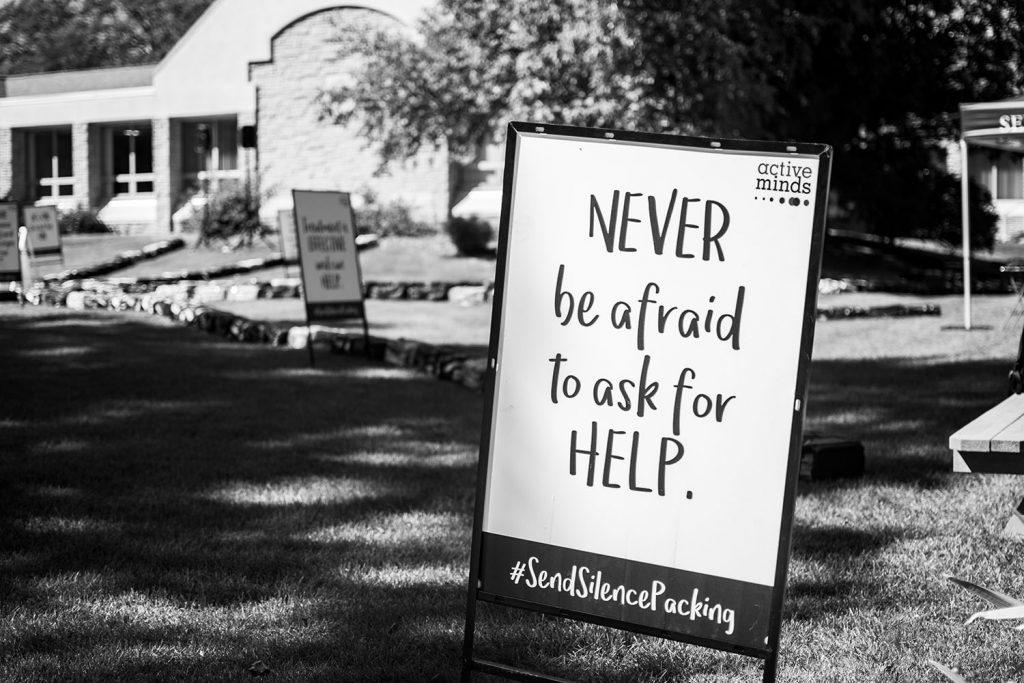Stress may seem like a normal part of daily life, and it is unless it gets out of control. It is necessary to reduce and cope with stress as much as possible, or else it will feel like the world is spinning.
Controlling stress is a crucial part of keeping up with one’s mental health and overall well-being. Although Gannon University is a relatively small school compared with most universities, being in a new atmosphere can be overwhelming.
It is crucial to have a balance between academics, extracurriculars and personal life. Students in smaller colleges may feel pressured to be involved in school and academics to such an extent that they are stretched too thin with too many responsibilities. Balancing school and life are key components to reducing stress levels.
Quite a few students use meditation and guided yoga apps to help de-stress from a long day of school to get focused again.
“I like the Headspace app a lot,” Aleah Cimino, a freshman economics major said. “I like it because it genuinely clears my mind and helps me focus afterward.”
While some students know of the options available to them, other students were unaware of Gannon’s health and counseling services.
“I haven’t heard or seen anything about counseling resources on campus,” said Soleil Rosenzweig, a freshman public service and global affairs major.
Gannon’s Counseling Center is a service available to all students. It is located on 210 W. Sixth St. and is open 8 a.m. to 4:30 p.m .Monday through Friday.
There, students have many ways of de-stressing. There is a room called “The Relaxation Room,” where students can go and destress. This room has a variety of things to help relax, such as a heated, reclining, massage chair, aromatherapy, various tea selections, guided relaxation and breathing methods, calm lighting and much more.
It is an excellent place to put everything aside for a second and unwind from the craziness that life throws at you sometimes.
“There are many things you could do to try to ‘handle it yourself’ such as engaging in an addictive behavior like drinking or drugs or ignoring it or isolating yourself from others,” said Jodi Giacomelli, Ph.D., a licensed psychologist at the Gannon Health and Counseling Center. “None of these take courage and all of them will make the issue worse.”
The Counseling Center also has an abundant amount of counseling services that can tend to anyone’s needs. Services include individual counseling, group counseling, couples counseling, crisis intervention and psychiatric services.
To begin counseling, students can stop in during the center’s walk-in hours from 9 a.m. to noon and 1 p.m. to 4 p.m. on Mondays, Wednesdays and Fridays Counseling is free and confidential.
“One thing that I often hear students say is, ‘Going to counseling is a sign of weakness…I should be able to just handle it myself and get over it,’” Giacomelli said. “I disagree so strongly with this. Opening up and sharing your struggles and vulnerabilities with another human being takes tremendous courage.”
The center is beginning Mindfulness Mondays, where students can drop in anytime between 2 p.m. and 4 p.m. on Mondays to learn and practice different relaxation, breathing and mindfulness exercises and can learn how aromatherapy and teas can be used in a mindfulness practice.
Even if it’s not for personal use, there are counselors available to talk about issues regarding someone you’re worried about, as well. Counselors will help create possible options to implement with the person of concern.
Safe Harbor is another option to get some help during a crisis. The center is located at 2560 W. 12th St. and is open 24/7. There is an abundance of services here to help anyone get through a hard time.
Safe Harbor also offers a “warm” line, which provides an outlet for anyone who may want to discuss the hard day they had or ask questions about their mental health. Students can reach the warm line at 1-877-550-4007.
The National Suicide Prevention Lifeline provides 24/7 confidential and free support for those in distress and needing crisis and prevention resources. They can be contacted at 1-800-273-8255.
The Crisis Text Line is an alternative to crisis services outside of the in-person or phone-based services. It also provides 24/7 confidential and free support for anyone who needs it. To contact the Crisis Text Line, text HOME to 741741 from anywhere in the United States whenever needed for any issue.
Please note that a crisis does not only mean suicide; it could simply mean just going through a painful time and being in need of help to get through it.
These services will connect immediately to a volunteer professional to give guidance during difficult times.
NATALEE STINEBISER
[email protected]












